
Placing as much as possible in our recycling bins is great for so many reasons: it helps the planet, helps keep our home tidy, makes us feel positive as we're contributing to a greener future, and the list could go on.
But placing the wrong items in our recycling bins can lead to repercussions, from making the job of professionals sorting through recycling harder to breaking expensive machinery needed to sort through it all.
If you're looking to be more sustainable at home, taking time to learn more about what items are and aren't recyclable is a good starting point. To help you begin, we asked experts in waste management and the environment which non-recyclables are most commonly placed in the recycling bin. Here's what they had to say.
5 things you should never recycle at home
1. Anything still containing food or liquid
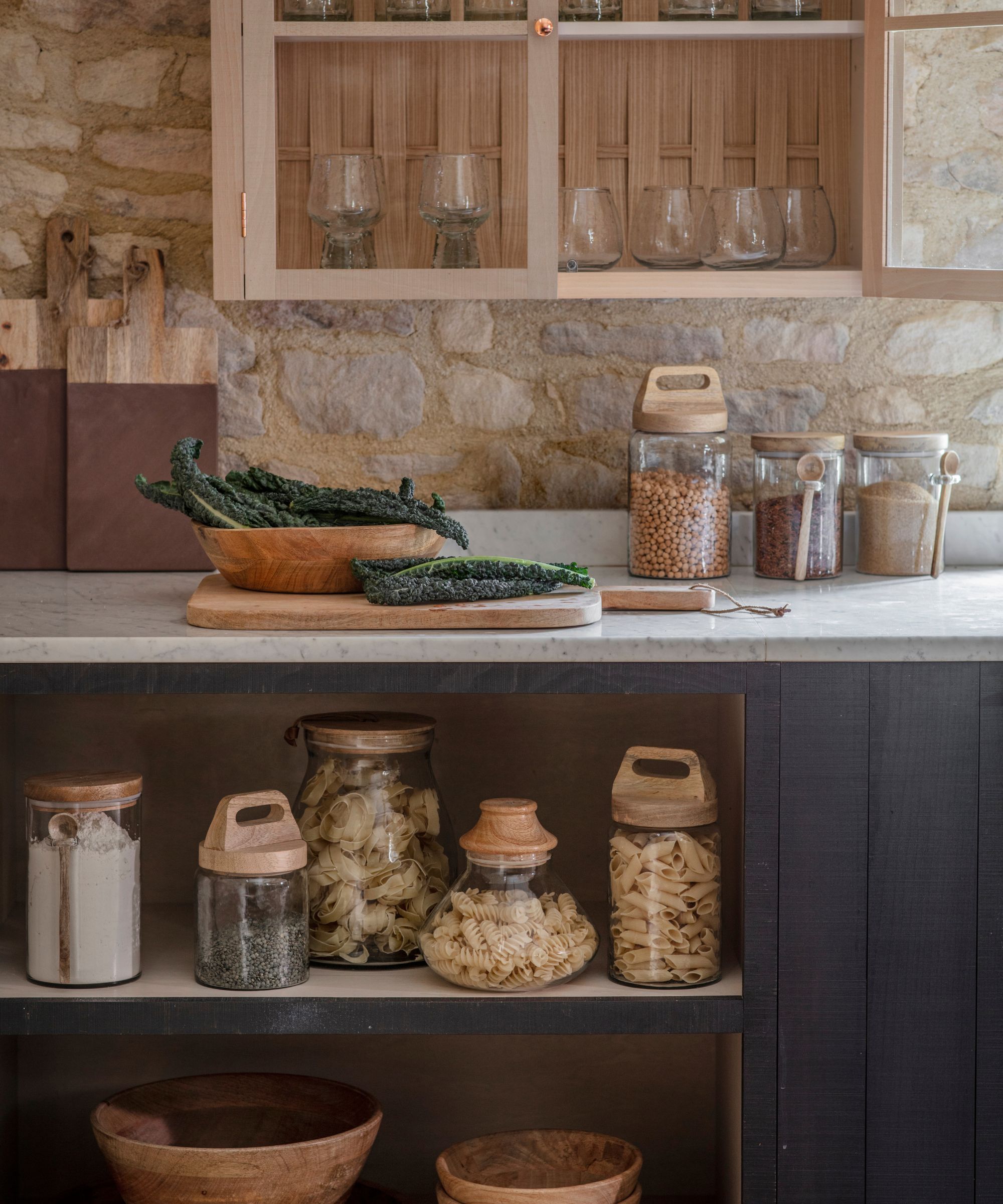
Tubs, trays, and bottles still containing leftover food and drink are one of the most common problems in the recycling stream. Not only can they not be recycled in their current state, but they also cause food and drink to spill all over other recyclable goods, making those harder to recycle as well.
Sandra Goldmark, associate dean at the Columbia Climate School, says, 'There are certain items that pretty reliably, across regions, should not be thrown into the recycling, including food scraps. Food scraps can represent as much as 30% of a municipal solid waste stream, which is problematic when mixed in with recyclables.'
Instead of throwing these items in with your recyclables, try to get into the habit of pouring away surplus liquids clearing your food scraps into the trash and/or using kitchen waste in the garden first. Then, in many cases, your packaging will be safe to recycle.
Using durable, reusable food containers such as the Rubbermaid Brilliance Food Storage Container Set of 36 from The Container Store to organize your kitchen without plastic. is another great way to reduce pollution in the recycling stream, too.
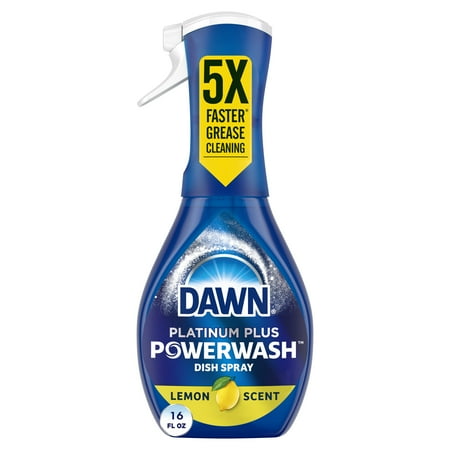
With a fresh lemon scent and a concentrated soap formula, Dawn Powerwash breaks down grease to limit how much you need to scrub.
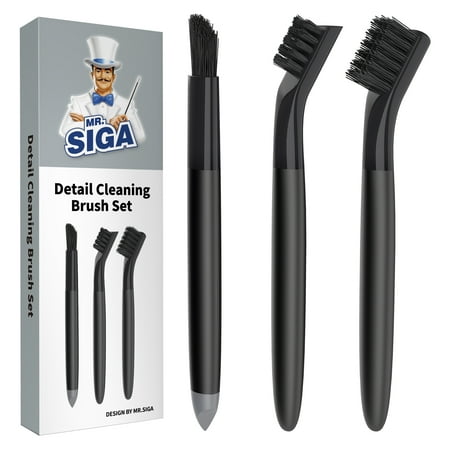
These small detail cleaning brushes are perfect for getting into the nooks and crannies of containers, making them ready for recycling.
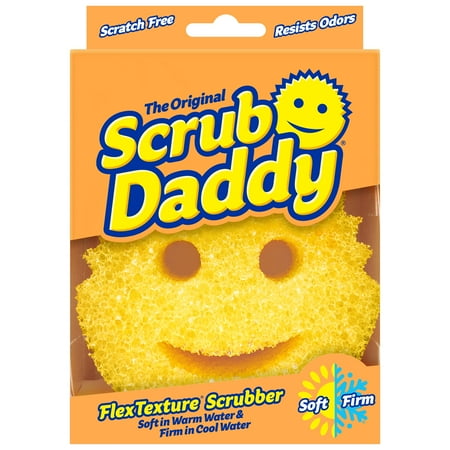
The Scrub Daddy sponge softens under hard water and toughens under cold water, allowing you to adjust the level of abrasion you need depending on the task at hand. They are great at breaking down tough grease and grime.
2. Loose plastic bags or bagged recycling
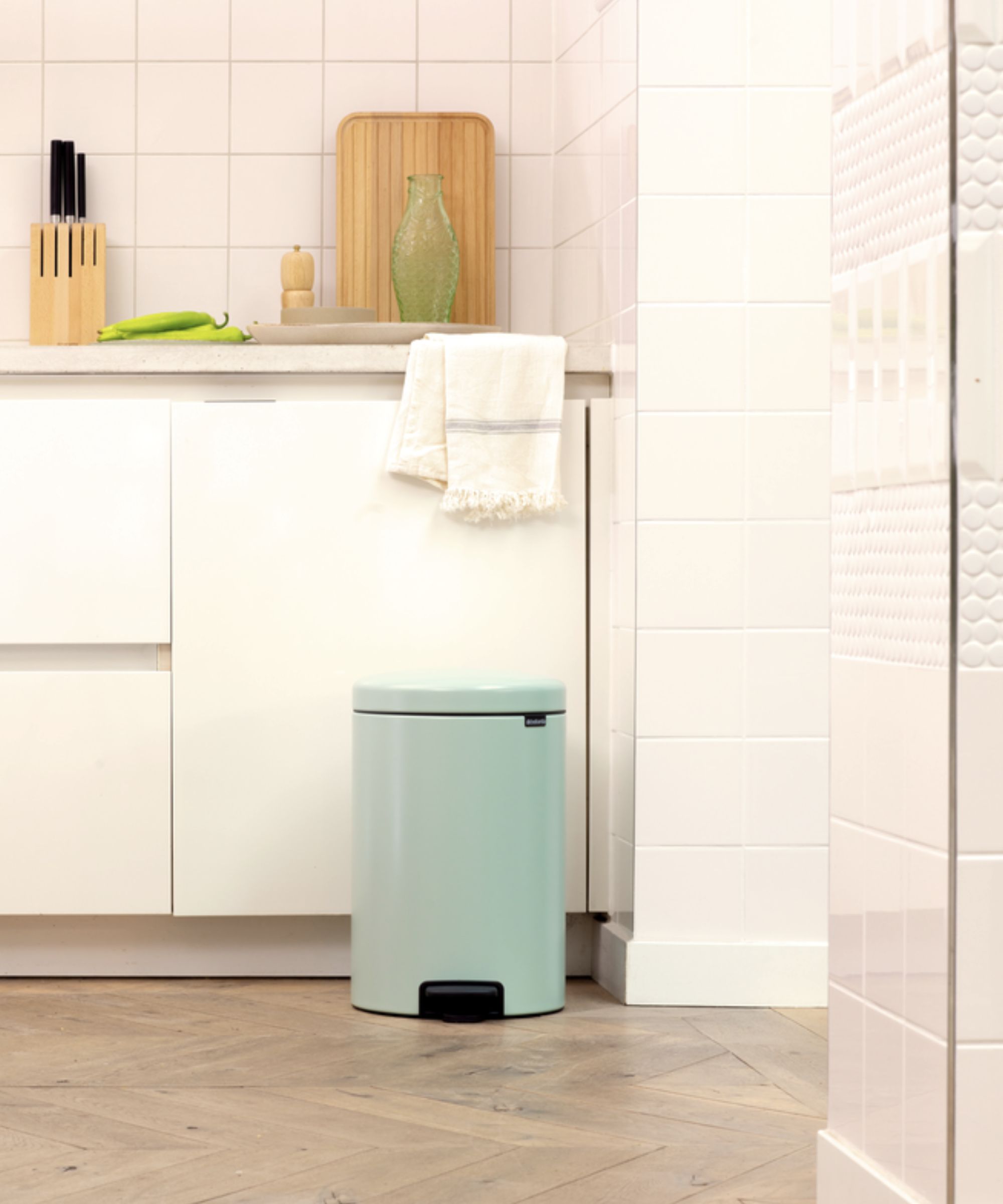
Stephanie Hicks, materials and recycling program manager at Trex Company, explains, 'Most people don’t realize that everyday plastics, such as shopping bags, produce bags, cereal box liners, dry cleaning sleeves, bubble wrap, and case overwrap, can’t be recycled in curbside recycling bins with other materials, such as paper, cardboard, and glass. The same goes for flexible plastic shipping pouches, like those from Amazon, FedEx, and UPS.'
Emy Kane, executive director and founding team member of Lonely Whale – an organization seeking to protect our oceans from plastic waste, adds, 'Soft, thin, film-like plastic – commonly used for grocery bags, food wrapping, and poly bags to ship clothes – accounts for nearly half of new plastic waste entering the ocean each year and is one of the trickiest plastics to properly dispose of. Thin film plastics are generally not accepted in curbside recycling as they clog sorting machinery, contaminate other recyclables, and offer minimal market value.'
All of these plastics that you can't reuse around your home can instead be dropped off at select grocery stores and retailers across the country because of partnerships with companies like Trex. Stephanie says, 'Trex partners with more than 32,000 grocery stores and retailers across the US to provide convenient drop-off locations for your miscellaneous plastics, and the sorting won't be in your hands.' You can learn more about drop-off locations here.
We recommend keeping a box to place your single-use plastic products inside ready to drop off. Something like the Mainstays Collapsible Fabric Cube Storage Bin from Walmart is simple to tuck away and can collapse when not in use.
Reusing your shopping bags, switching to tote bags, and donating spare plastic bags to thrift stores are two small ways to reduce your plastic consumption, bringing less into the recycling stream. Similarly, using beeswax wrap instead of cling film and plastic bags for food storage is a good idea, too. These Bee's Wrap Reusable Beeswax Food Wraps from Amazon are a popular choice and can be reused time and time again.
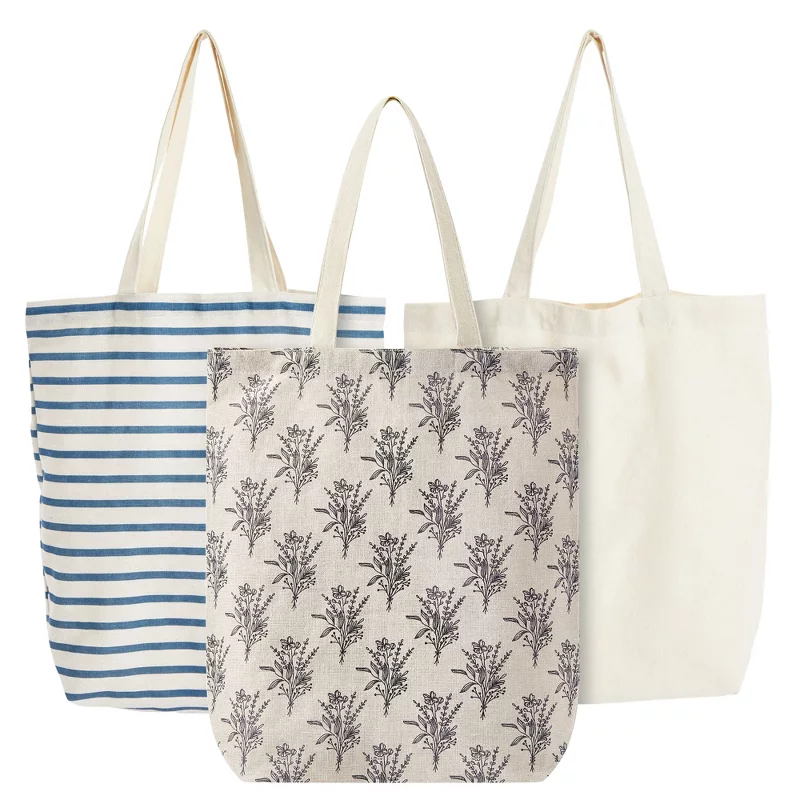
Perfect for quick store trips and grocery shops, these reusable tote bags can be neatly folded up and tucked into your handbag or pocket for any last-minute spends, reducing plastic waste.
3. Miscellanous plastic items
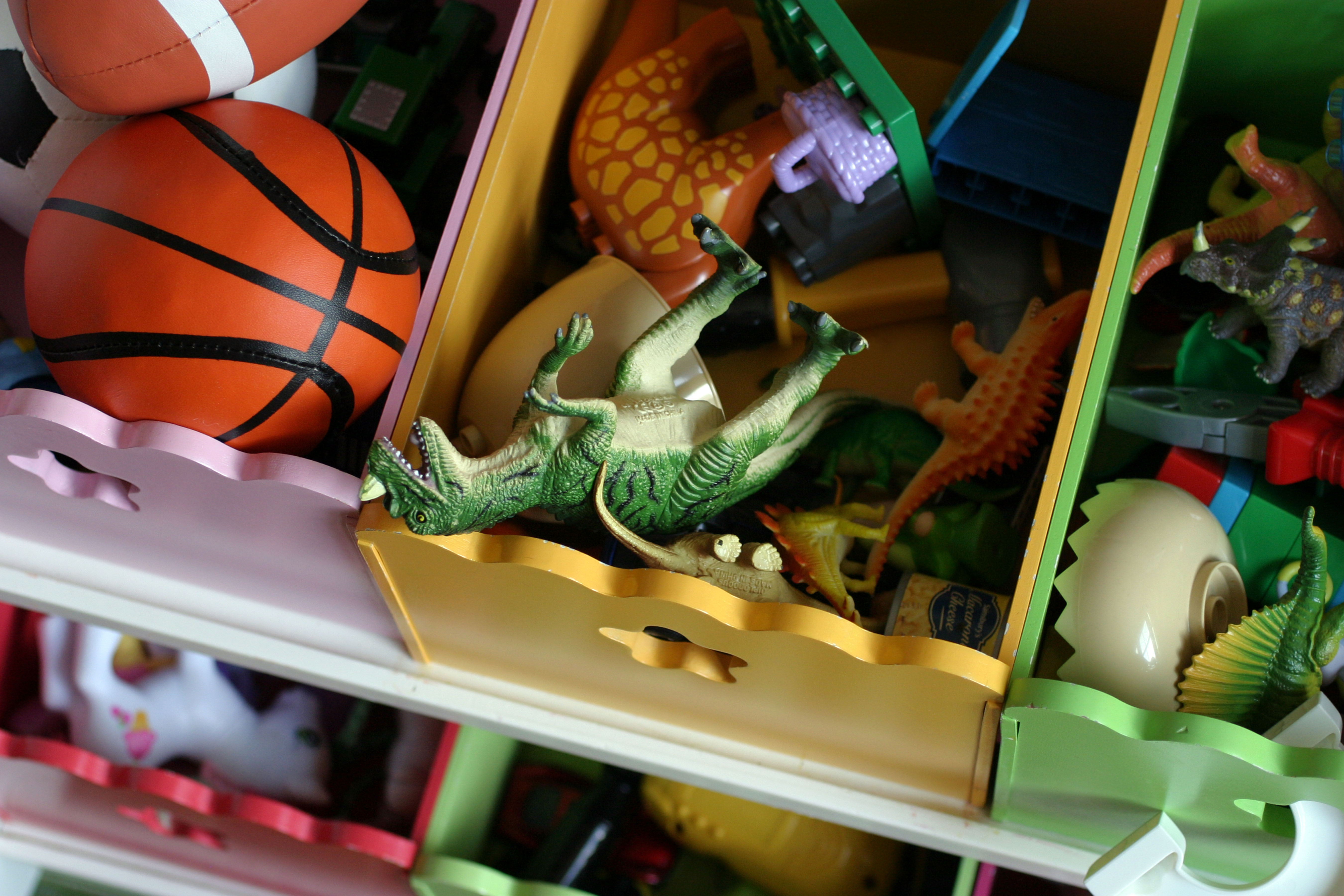
A common mistake no one tells you about recycling at home is that just because something is made from plastic doesn't automatically mean it's recyclable. If only it were that simple! Broken children's toys, garden chairs, and old attic finds should most likely skip the recycling bin.
Brent Bell, vice president of recycling at Waste Management (WM), shares some of the common items he comes across in the recycling, as well as why they should be avoided.
He says, 'Don’t recycle things like garden hoses, ropes, and extension cords. These items can get tangled in recycling equipment, impacting operations and causing damage to equipment. WM also receives thousands of sports balls like basketballs, soccer balls, and even bowling balls for recycling. Sport balls do not belong in any recycling program!'
If you have spare children's toys or sporting equipment in good condition, you can declutter without throwing them away by donating them to a thrift store to keep them out of the landfill. Your garden hoses and other items in good condition could be donated as well, but if they are broken beyond repair, it's best to bring these to a disposal site directly to keep them out of garbage sorting machinery.
4. Batteries
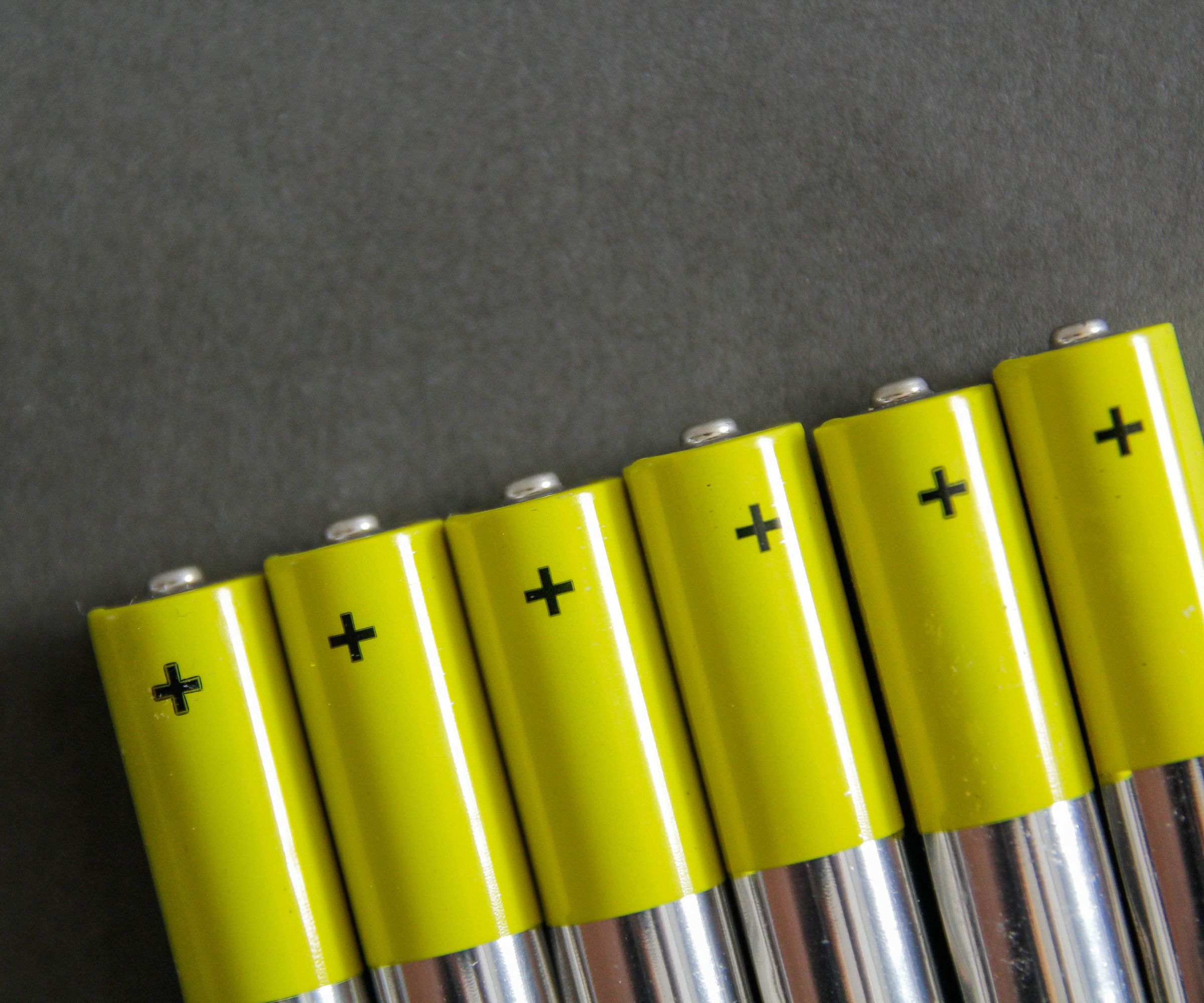
Many of us know that batteries are recyclable but not how to recycle them. Unfortunately, it isn't as simple as just dropping them in with your paper and cardboard. In fact, if you place batteries in with your everyday recyclables it can pose a fire hazard.
Brent warns, 'It's important to keep batteries and propane tanks out of curbside recycling and waste bins, as they can cause fires at waste and recycling facilities.'
Instead, if you're seeking to recycle batteries, save them up in a container and keep your eyes peeled in grocery stores for local drop-offs. Switching to rechargeable batteries is a great swap too, especially if they are energy efficient. The Energizer Power Plus Rechargeable AA Batteries 8 Pack on Amazon are an ideal choice.
5. Bio-based compostable, or cornstarch plastics
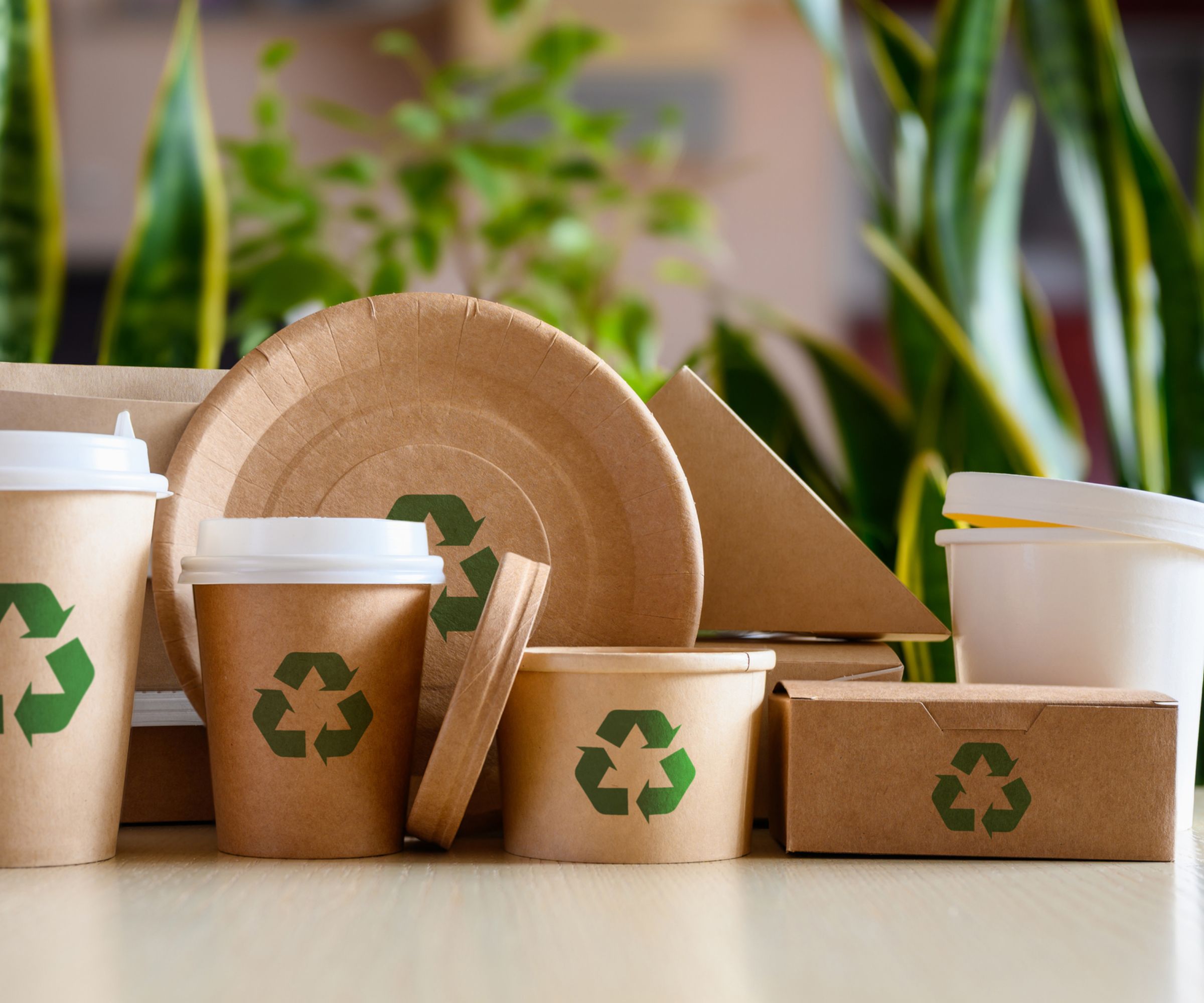
Bio-based products cause a lot of confusion, as they sound environmentally friendly and, in turn, like something that "should" be recyclable. However, in a lot of cases, they aren't: they can either be composted, or can't be recycled or composted at all.
Sandra warns, 'Be wary of bio-based or cornstarch plastics. These well-intentioned products can be a real problem. They are often mistaken for plastics, but they foul up plastic recycling streams, and they are often labeled "compostable," but they are not compostable in many areas. I avoid these products altogether, personally.'
If you're trying to be as close to zero waste as possible, perhaps research whether any local schools, care homes, or craft groups could use your bio-based waste in any upcoming DIY projects. This will keep the items out of landfills for longer and allow others to enjoy them.
Meet the experts
It isn't just the smaller items that can be recycled at specialist collection points. Appliances are tricky for people to dispose of if they aren't in working condition to donate, so they often find a new home at the dump. But if you take some time to look into it, there are ways to declutter more sustainably. For instance, here's how to get rid of your old vacuum cleaner in 4 sustainable ways, and some of them may surprise you.







